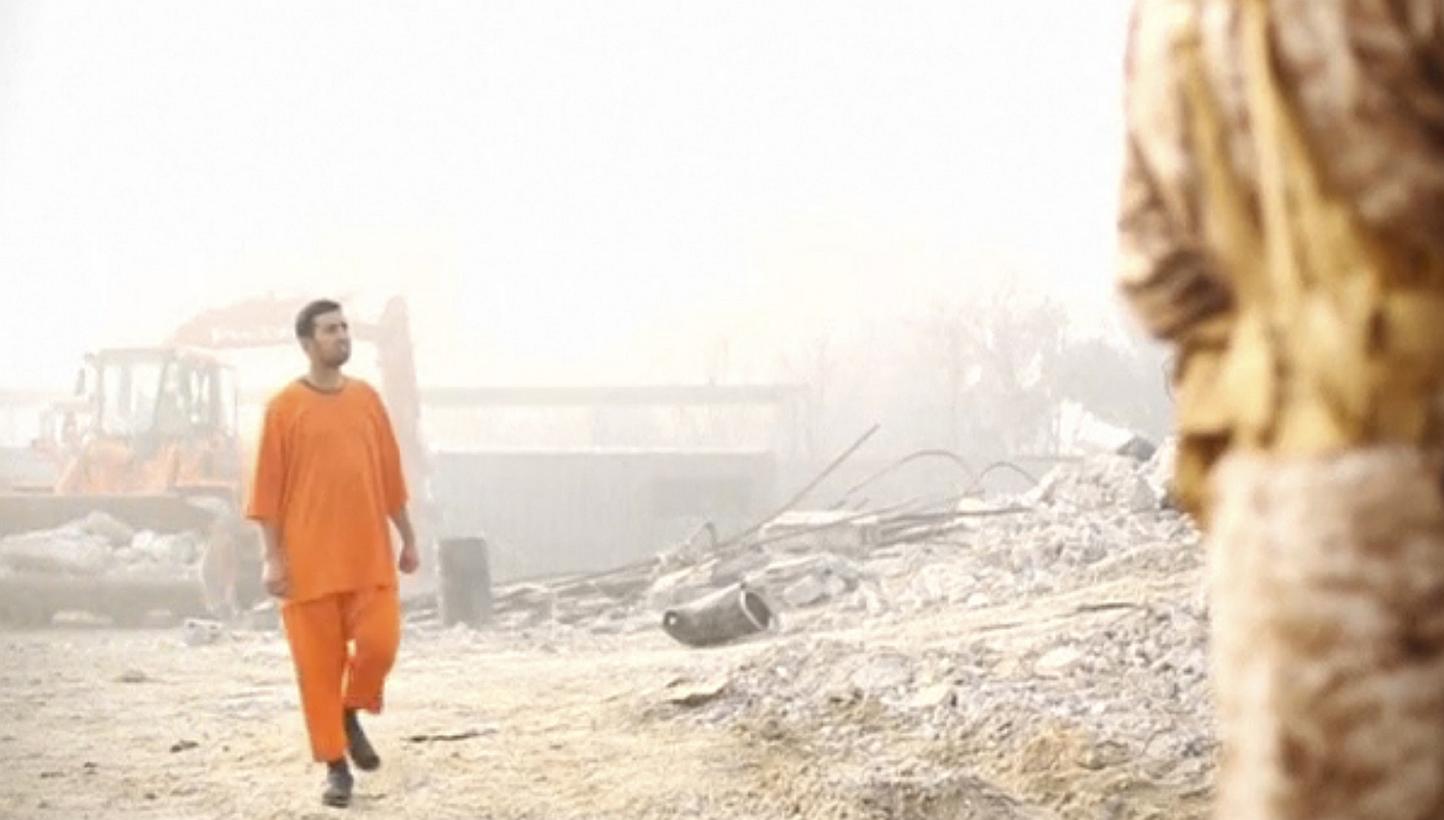Firdaus Yahya
Burning of Jordanian pilot by ISIS is a crime in Islam
Sign up now: Get ST's newsletters delivered to your inbox

A still image from a video made available on social media purportedly shows Jordanian pilot Muath al-Kasaesbeh in an undisclosed location. Lieutenant Kasaesbeh was burned alive by ISIS militants, allegedly in retaliation for dropping a bomb from his fighter jet.
PHOTO: REUTERS
News of the Jordanian pilot who was burned alive shocked the world.
The Islamic State in Iraq and Syria (ISIS) justified the act as being part of the Islamic law Qisas, or retribution.
They claimed that Lieutenant Muath al-Kasaesbeh had dropped a bomb from his fighter jet, killing ISIS soldiers/jihadists. He was burned alive in retaliation for that particular act.
Is this Qisas?
First of all, there is a need to define Qisas. It is the Islamic law that allows for the proportionate punishment of crime.
In the case that A has slapped B's right cheek, B is then allowed to slap A's right cheek just as hard. This is Qisas.
In the Quran some verses on these are:
- Verse 194 from Surah Al-Baqarah: "So whoever has assaulted you, then assault him in the same way that he has assaulted you."
- Verse 45 from Surah Al-Maidah: "And We ordained for them therein a life for a life, an eye for an eye, a nose for a nose, an ear for an ear, a tooth for a tooth, and for wounds is legal retribution.
"But whoever gives (up his right as) charity, it is an expiation for him. And whoever does not judge by what Allah has revealed - then it is those who are the wrongdoers."
There are three things we need to consider from the verses above.
First: Qisas needs to be equivalent to the act. It cannot exceed the crime that has been done.
For example, someone who was purposely blinded in the right eye by another has the right to blind the right eye of his attacker. Not both his eyes, nor his left eye.
However, there are offences that are difficult to measure accurately. Take, for example, the act of punching. The force of the punch itself cannot be measured accurately. Thus, it is difficult to punch back with an equitable amount of force.
For that Allah has taught one lesson from the verse above.
In other words, the Quran gives permission to victims and family members affected to let go of their Qisas claim.
This is more important because Allah will repay back with His forgiveness. This is one of the many examples of goodwill in Islam.
Allah reminds us how noble it is to repay crime with goodness. In Surah Fussilat Verses 34 and 35, it is said:
"The good deed and the evil deed cannot be equal. Repel (the evil) with one which is better; then verily he between whom and you there was enmity (will become) as though he was a close friend."
Next: Anyone who transgressed Qisas belongs among the wrongdoers.
Thus those who burn people alive on the basis of Qisas can be included in the category of extremism and tyranny.
Islamic scholars ban the act of burning humans alive. This is based on several hadiths, among them:
- Hadith by Imam Abu Daud and Imam Ahmad: Do not punish anybody with Allah's punishment (fire). Only Allah can punish anybody with (fire).
- Hadith by Imam Muslim: An ant had bitten a prophet (one among the earlier prophets) and he ordered that the colony of ants be burnt.
And Allah revealed to him: "Because of an ant's bite, you have burnt a community from amongst the communities which sing My glory."
Renowned scholar Imam Abu Hanifah declared that Qisas punishment can only be done using the sword - not with any other tool, not to even mention fire.
This is based on a hadith by Imam Ibn Majar that says it is forbidden to do Qisas except with the sword.
Given the explanations above, the act done by the ISIS militants was wrong and a crime in Islam, no matter what excuses were being given.
The writer is the founder of Darul Huffaz education centre in Singapore that promotes reading and understanding of the Quran. This is a translation of an article that appeared in the Malay-language newspaper Berita Harian on Feb 5.


